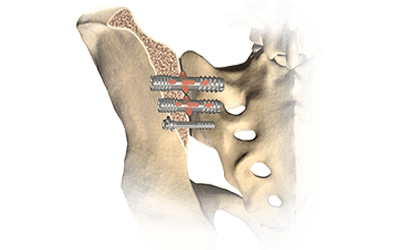Land Your First IOM Job
It’s the weirdest thing… IOM companies are always looking to hire someone with at least a CNIM and 3 years experience while so many people are always wondering where to find their first IOM job.
There’s always that initial barrier to get past. But once you get the CNIM and/or DABNM, and a couple of years under your belt, the options start to open up.
So how do you get around it?
I’ll tell you some real life experiences of how some people got their IOM job, and then some other theories that I bet would work out for you.
- Get some fancy letters behind your name – It will at least get you some consideration. That’s how I got my first IOM job. I had OTR, DC and DACNB for credentials and experience doing electrodiagnostic in my office. Is that the best route to go? Probably not. My student loans remind me of that once a month.
- Get in the giving spirit – Offer to volunteer for a couple of weeks. It’s actually a pretty good idea, except it’s like going to work without pay. That stinks. But you’ll get to see what it is exactly we’re doing, what the day-to-day stuff looks like, get over any fears of being in the OR, etc. If you like it, make sure you let the possible employer see your enthusiasm. They don’t want to train people just to have them leave, and knowing that you actually “want” to do the work will get them over that one barrier. I know people who have gone this route, all got the job. However, this isn’t always an option. Many OR’s will not let random people in. [EDIT: It now seems like this option is almost extinct. Hospitals have really beefed up their security in the past 5 years. They now have all these credentialing companies doing the heavy lifting to keep out stragglers. Even though it makes entering this field harder, it is still probably for the better.]
- Get social – If you don’t have a facebook, LinkedIn, twitter and google + account… get one. Get all of them. It’s great for stalking people and then introducing yourself. I do it, you should do it too. If I was starting fresh, I would start with someone who already has some connections (like me). Then link up with people that they know. In my LinkedIn account (for instance), you can see some neuromonitoring discussions that I take place in. Join those groups. Introduce yourself, ask questions, learn the “language,” make contacts, make friends. Most of the people who get into this already knew someone doing it. Get to know many people doing it and up your chances.
- Get educated – It used to be impossible to know what’s going on in IOM. It’s much easier now. Read this blog and comment, study some material, watch a video, take an exam, read a couple books, watch a slide presentation, check out what our national associations are saying and join in those discussions online.
- Get ballsy – It’s easy enough to find hospitals in the areas you want to work. Pick up the phone and ask to talk to the person in charge of hiring. Don’t email, don’t snail mail. Pick up the phone. A friend of mine did this at a local hospital, started work in the OR 2 weeks later.
- Get some intel – Find out why these companies aren’t hiring people without experience and have a well thought out response for every reason (by talking to the current employees, of course). Find out what their problems or hangups are and see if you can solve it for them. Sign a 2-year contract, offer to relocate, let them know what you already know, name drop people you’ve talked with about the job, etc.
- Get in their ear – By all means, don’t be a PITA, but show them some actual interest. Don’t just send in a resume, follow-up with a call. Then an email. Then let them know what you’re up to on LinkedIn (like “just got done reading Nuwer’s book, what would you recommend next?”). Ask them out for lunch to talk about the industry. The safe bet is no one else is doing it.
- Get a headhunter, if all else fails – some places will pay the fee for someone with experience, but this might be a stretch for a newbie. Might be worth at least talking to one to see if you can get a feel for what or who they know.
There are more and more people looking to get an IOM job. There are people of all backgrounds and qualifications. The bottom line is you’re probably going to have to make this thing happen yourself. Be a go-getter; stand out from all the rest. The truth is you’ll probably get the job because you made it happen.
“Things may come to those who wait…but only the things left by those who hustle.
Keep Learning
Here are some related guides and posts that you might enjoy next.
How To Have Deep Dive Neuromonitoring Conversations That Pays Off…
How To Have A Neuromonitoring Discussion One of the reasons for starting this website was to make sure I was part of the neuromonitoring conversation. It was a decision I made early in my career... and I'm glad I did. Hearing the different perspectives and experiences...
Intraoperative EMG: Referential or Bipolar?
Recording Electrodes For EMG in the Operating Room: Referential or Bipolar? If your IONM manager walked into the OR in the middle of your case, took a look at your intraoperative EMG traces and started questioning your setup, could you defend yourself? I try to do...
BAER During MVD Surgery: A New Protocol?
BAER (Brainstem Auditory Evoked Potentials) During Microvascular Decompression Surgery You might remember when I was complaining about using ABR in the operating room and how to adjust the click polarity to help obtain a more reliable BAER. But my first gripe, having...
Bye-Bye Neuromonitoring Forum
Goodbye To The Neuromonitoring Forum One area of the website that I thought had the most potential to be an asset for the IONM community was the neuromonitoring forum. But it has been several months now and it is still a complete ghost town. I'm honestly not too...
EMG Nerve Monitoring During Minimally Invasive Fusion of the Sacroiliac Joint
Minimally Invasive Fusion of the Sacroiliac Joint Using EMG Nerve Monitoring EMG nerve monitoring in lumbar surgery makes up a large percentage of cases monitored every year. Using EMG nerve monitoring during SI joint fusions seems to be less utilized, even though the...
Physical Exam Scope Of Practice For The Surgical Neurophysiologist
SNP's Performing A Physical Exam: Who Should Do It And Who Shouldn't... Before any case is monitored, all pertinent patient history, signs, symptoms, physical exam findings and diagnostics should be gathered, documented and relayed to any oversight physician that may...








Hello Mr. Joe Hartman,
My name is Krystal Parker and I recently graduated from Life University Chiropractic Program. I have been trying to get my foot in the door to become a Neuromonitor. I have read your blogs, and basically taken all your given advice. I’m reading books, studying slides, watching videos, I got LinkedIn, etc. As I am continuing to educate myself, I have sent out numerous applications. Unfortunately I am not hearing back from anyone.
My first question is should I be calling these places asking if they received my resume? I’m not sure if that would be perceived as being overwhelming or if it would be perceived as persistent. Or should I call to get the email address and send an email to the appropriate person/department. Next question is I have joined many job posting sites. I have sent majority of my resumes through these sites verses sending my resume through there direct site, mail or faxing it. Do you think you think one method of submitting a resume works better than another?
I’m not sure if I have a good answer about the follow-up. Not too long ago, there were mostly mom and pop companies, and the owner was someone who was in the field, attends seminars, etc. They were someone you could find out about, or introduce yourself to. Over the past year or so, large companies have bought out many of the these small practices. These companies no longer have a personal identity.
It used to be… “Joe Danto’s group is hiring chiropractors, you should talk to Joe.” But now your point person is most likely a HR representative, a recruiter or even more than 1 person to go through. So it’s very hard to know if they like a follow-up call or fax or resume sent directly to their website or through simplyhired.com or what. I’m sure it’s different for each group.
If it were me, I’d be trying to get in contact with them. Being qualified and a good fit is one thing, but timing is a big part of it too. When it comes time to hire, you want your name front and center in their minds. Just walk that go-getter/P.I.T.A line carefully.
Good luck to you.
And anyone looking to hire someone straight out of chiropractic school (who should remember most their neuroscience, anatomy, physiology, pathology, radiology, etc.), make sure you get in touch with Krystal Parker.